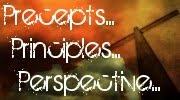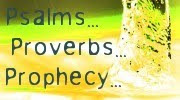Saturday, April 21, 2007
Paradox of Reason
The paradox of reason should be understood in the regard that truth is not subject to reason, but rather that reason must be guided by truth. All things are (or are not) because of inescapably correspondent application. Our reasoning them to be so, or not, is of no consequence to their actuality. Reason, logic and similar mental disciplines, though however necessary they may be, are similar in nature to profound perception. However the line of contemplative deduction is applied and whatever its culmination has exposed must be subjugated to the strengths and weaknesses of its own make up. Only then can it be realized as a truth or an aspect of a more significant truth or no truth at all. Therefore, it is not simply reasoning that leads us to truth, but more appropriately it is truth that sheds light on our capacity and ability to reason.
Subscribe to:
Post Comments (Atom)





indeed, truth is not subject to reason. however our ability to know truth is subject to our ability to reason. -ye shall know the truth...- but how will we know it w/o reason? and who is the arbiter of truth?
ReplyDeleteas to the close of your statement. is suppose Descartes said it best, 'cogito ergo sum' 'i think, therefore i am'. the truth of his existence shed light on his ability to question his existence.